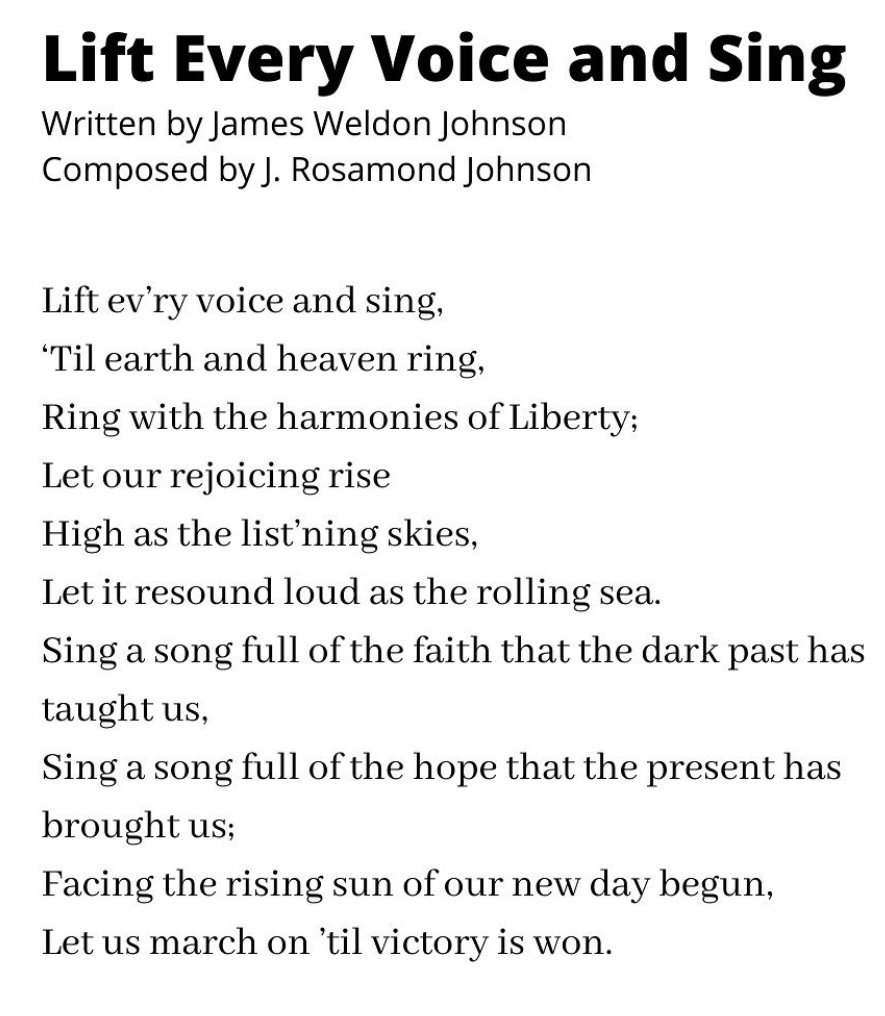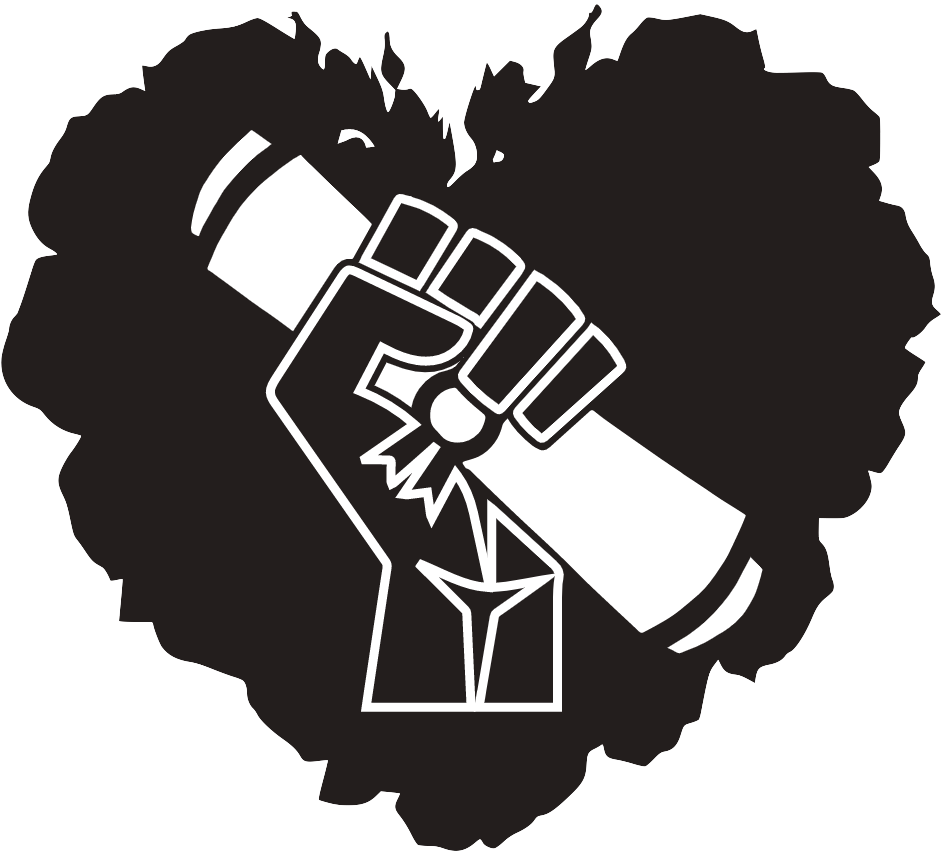It was only a couple years ago, in 2018, when Beyonce gave an unprecedented performance at the Coachella music festival. But what was so special about this performance? Among other celebrations and nods to Black culture, her performance also included a portion of the song “Lift Every Voice and Sing.” This ballad, familiar to many Black and African Americans from school, church, and family gatherings, is often referred to as the “Black National Anthem.” However, it had never been performed on such a large, public stage, or in front of an audience of mostly white concert-goers. In this moment, Beyonce both literally and symbolically gave voice to the struggle and hope of Black and African American people embodied in this song.

The anthem actually began as a poem, written by James Weldon Johnson, which was set to music by Johnson’s brother, John Rosamond Johnson. The song made its debut in February of 1900 at a segregated school in Jacksonville, FL, where a group of 500 school children sang in celebration of Lincoln’s birthday. At the time the song was composed, Jim Crow and segregation were in full swing, ensuring the continued oppression and exploitation of Black and African American people in the post-Civil War era. The song quickly became a rallying cry, a symbol of resistance, and an acknowledgement of hope and perseverance, while in full acknowledgement of the brutalities faced by the Black community.
Throughout history, as ideologies and activism evolved, the song has grown in and out of favor, but has found renewed relevance in recent years and has been sung at protests and rallies across the country. Just this year, Representative James Clyburn called for the song to be recognized as a national hymn, saying that the change would tell Black people, “you aren’t singing a separate national anthem, you are singing the country’s national hymn.” And only yesterday, the anthem, sung by Alicia Keys, filled our living rooms during the pre-game ceremonies of the Super Bowl. As we hear the words and understand their meaning, let’s not stop at performative activism. In the words of James Weldon Johnson, let us continue to “march on till victory is won.”
 Lawson Porter Scholarship Foundation
Lawson Porter Scholarship Foundation